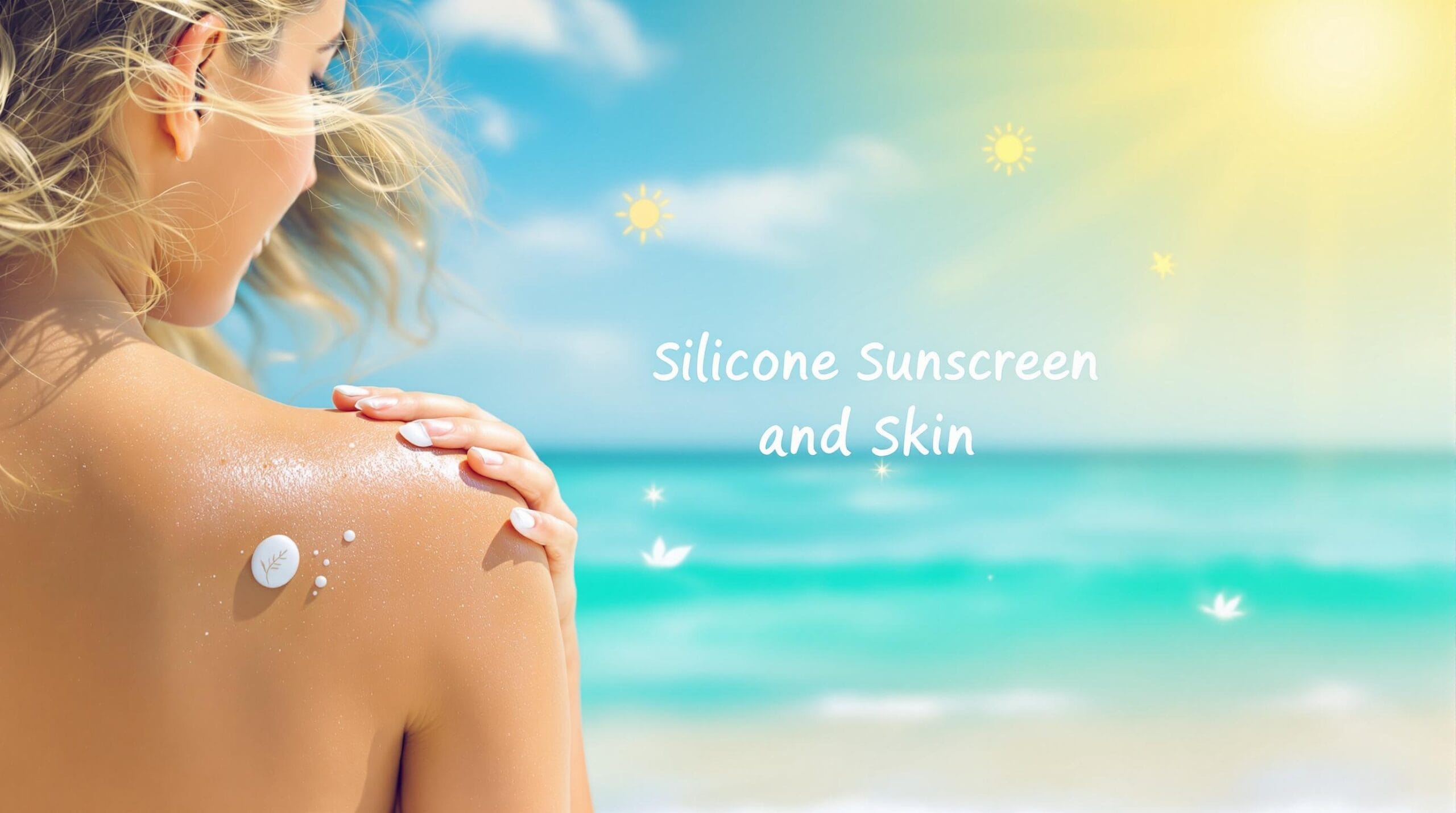
Silicone sunscreen is a type of sun protection product that features silicone as a key ingredient. Silicones are synthetic compounds that create a smooth texture on the skin. Their main role in sunscreens is to enhance the product’s feel and application. Unlike traditional sunscreen ingredients, silicone provides a unique formulation that creates a barrier against UV rays while being lightweight and breathable.
Silicone has gained popularity due to its water-resistant properties, making it suitable for outdoor activities. Many people prefer silicone sunscreens because they offer a silky-smooth application without leaving a greasy residue. Overall, silicone acts as a beneficial ingredient in sunscreens, providing both protection and comfort for diverse skin types.
Unmasking the Myths: Does Silicone Suffocate Skin?
Several misconceptions surround silicone cosmetics, particularly related to skin suffocation. Many users worry that silicone-based products might block pores and cause breakouts. However, this is not entirely accurate. Silicone creates a breathable layer on the skin, allowing moisture to escape while shielding against environmental aggressors.
Understanding silicone’s lightweight nature helps dispel myths. When applied, silicone-based sunscreens do not clog pores. Instead, they provide a breathable barrier that protects skin from harmful UV rays and pollutants, making them suitable for various skin types, including sensitive and acne-prone skin.
Benefits of Silicone Sunscreen: A Shield for Your Skin
Silicone sunscreens boast several advantages. One key benefit is their water-resistant nature. Silicone forms a robust shield against moisture, making it ideal for beach outings or workouts. This long-lasting protection allows users to enjoy their activities without constantly reapplying sunscreen.
Another notable advantage is their smooth application. Silicone sunscreens glide effortlessly on the skin, providing a silky feel that enhances overall comfort. Furthermore, they create a protective barrier against environmental damage, including pollution and UV rays, safeguarding your skin’s health.
The Science Behind Silicone: Is it Safe?
Experts generally agree that silicone is safe for most skin types. Renowned dermatologists have conducted studies highlighting the benefits and safety profile of silicone in skincare products. Its non-comedogenic nature means it is unlikely to cause clogged pores or acne breakouts.
Additionally, silicone has hypoallergenic properties, making it suitable for sensitive skin. For those seeking reliable protection without irritation, silicone sunscreens offer a gentle solution. This safety consideration, combined with their effectiveness, makes silicone sunscreens a popular choice among users.
Comparing Silicone and Other Sunscreens: What’s the Difference?
When comparing silicone sunscreens to chemical sunscreens, key differences arise. Chemical sunscreens absorb UV rays through active ingredients, whereas silicone sunscreens form a protective barrier. Chemical formulas may lead to skin irritation for some, while silicone tends to be milder.
In terms of physical sunscreens, which use mineral ingredients to reflect UV rays, silicone sunscreens offer a smoother texture. Users with oily or combination skin may prefer silicone sunscreens for their lightweight finish, while those with dry skin might benefit more from physical sunscreens. Ultimately, individual preference and skin type dictate the best selection.
How to Choose the Right Silicone Sunscreen for You
When selecting a silicone sunscreen, consider beneficial additional ingredients. Look for products containing moisturizing agents like hyaluronic acid or antioxidants such as vitamin E. These ingredients can boost hydration and provide extra protection against free radicals.
Additionally, consider your skin type. Oily skin might benefit from lightweight formulations with oil-free components, while dry skin may require silicone sunscreens with added moisturizers. By understanding your skin’s needs, you can find the right silicone sunscreen that delivers effective protection and comfort.
DIY with Caution: Can You Make Silicone Sunscreen?
Creating DIY sunscreen poses significant risks, particularly when it comes to safety and effectiveness. Without proper knowledge of formulation, homemade sunscreens may lack adequate sun protection. This can lead to skin damage and increased UV exposure, defeating the purpose of sunscreen altogether.
For those seeking reliable options, numerous reputable silicone sunscreen brands are available. Look for products tested for effectiveness, ensuring they meet safety standards. Opting for popular brands allows users to enjoy the benefits of silicone without compromising health.
Conclusion: Is Silicone Sunscreen Great for Your Skin?
In summary, silicone sunscreen offers numerous benefits, including water resistance, a smooth application, and excellent skin protection. Understanding its safety and advantages can help users make informed choices. Each individual’s skin type and concerns are important in selecting the right sunscreen for their needs. Before purchasing, evaluate the product label for beneficial ingredients and consider how they align with your skin’s requirements.
For more information about selecting the right sunscreen, explore various options and reviews. When in doubt, consult with skincare professionals to guide your selection.
FAQs
1. Can silicone sunscreen cause breakouts?
Most silicone sunscreens are non-comedogenic and are unlikely to clog pores.
2. How often should I reapply silicone sunscreen?
Reapply every two hours, especially after swimming or sweating, for optimal protection.
3. Is silicone sunscreen suitable for sensitive skin?
Yes, silicone sunscreens have hypoallergenic properties, making them a good option for sensitive skin.
4. What makes silicone sunscreens different from chemical sunscreens?
Silicone sunscreens form a barrier, while chemical sunscreens absorb UV rays.
5. Does silicone sunscreen feel greasy?
No, silicone sunscreens typically provide a lightweight feel without greasiness.







